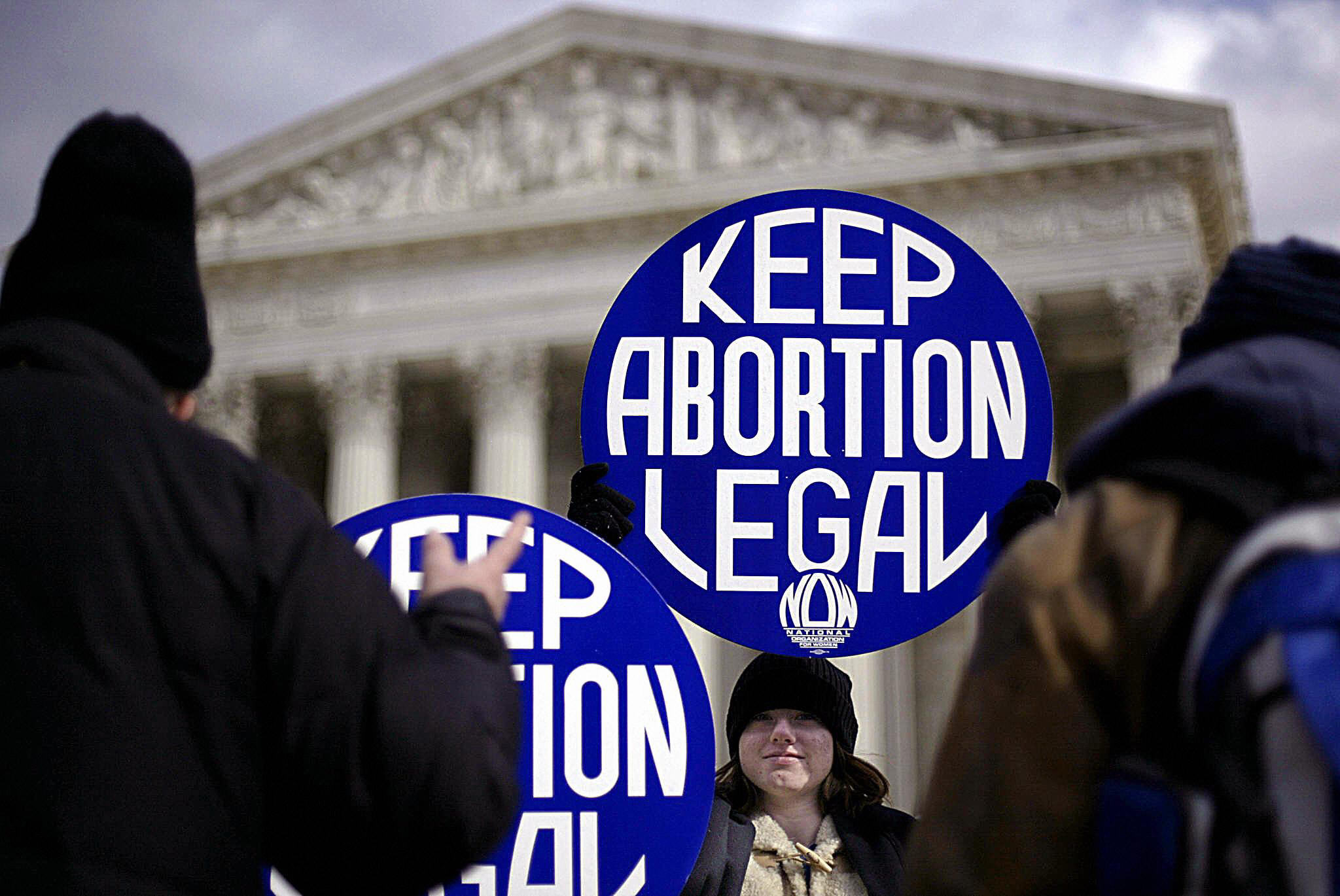Seven States Will Immediately Ban Abortion If Roe v. Wade Is Overturned

Credit to Author: Marie Solis| Date: Tue, 14 May 2019 16:58:02 +0000
There’s no single strategy to overturning abortion rights on the state and federal level. Instead, there are several, all working in tandem toward creating a future where abortion is illegal.
At the end of a week saturated with news about states passing six-week bans, anti-choice lawmakers in Tennessee celebrated a different victory: On Friday, Governor Bill Lee signed a bill that would immediately ban abortion in the state should the Supreme Court overturn Roe v. Wade. Short of overturning Roe v. Wade, the bill would also trigger an abortion ban in the event that the Constitution is amended to allow states the ability to prohibit abortion as they see fit.
Once rare, the legislation, known as a “trigger law,” has become increasingly common under President Donald Trump and a newly conservative-leaning Supreme Court. Up until this year, just four states—Louisiana, Mississippi, North Dakota, and South Dakota—had trigger laws on the books, all of which had been enacted between 2005 and 2007. But in the last few months alone, Arkansas and Kentucky joined them, making Tennessee the seventh to enact such a law.
In Tennessee, the law’s passage represents divergent views about how best to further the anti-abortion agenda. Last month, when the conservative-led state legislature failed to pass its own six-week abortion ban, GOP lawmakers decided to abandon that tactic in favor of pursuing a trigger law—legislation that’s less likely to become entangled in costly legal challenges. The anti-abortion movement in Tennessee should focus “on policies that stand the strongest chance of being upheld as constitutional and enforceable,” Brian Harris, president of Tennessee Right to Life, told the Tennessean at the time. And the state’s lieutenant governor, Randy McNally, warned against pursuing unconstitutional legislation that could result in the state paying extensive legal fees, thereby putting “money in [the] pockets” of abortion rights advocates.
Trigger laws “send the signal that the legislature is very eager to ban abortion but not eager to take on the financial cost of a court case,” said Elizabeth Nash, the senior state issues manager at Guttmacher Institute. “There are costs involved in pursuing a case that might not give you the outcome you want.”
Historically, passing a six-week ban has been a guarantee of a messy legal battle that will end in failure for anti-abortion advocates. No six-week ban has ever gone into effect, and recent ones in Kentucky, Mississippi, Ohio, and Georgia have all been met with swift legal challenges or the promise of them.
But pro-choice activists argue that conservative lawmakers aren’t avoiding a legal battle so much as they’re delaying it: Planned Parenthood of Tennessee and North Mississippi has called Tennesseee’s trigger law “blatantly unconstitutional,” and promised to challenge it should it ever go into effect.
Still, trigger laws introduce a degree of uncertainty for both their supporters and detractors, especially as the reality of how the court could dismantle Roe v. Wade begins to take shape. Over the past several months, it has become clear that it is far more likely that Supreme Court justices will undermine the landmark 1973 decision to the point of meaninglessness rather than overturn it outright. (Though a ruling on Monday signaled that Supreme Court justices are game to ignore precedent, establishing that they could do the same if pushed to rule on Roe v. Wade.) And since, save for Tennessee’s, trigger laws typically stipulate they will go into effect “when Roe v. Wade is overturned,” it will be up to the states’ attorneys general to say how—or if—they will be enforced.
“It is possible to imagine a political or legal fight over this,” Nash said. “If you’re sticking to the words on the page and it says ‘overturn’ and Roe isn’t ‘overturned,’ there’s an argument to be made that the law isn’t going into effect.”
One can dive even deeper into the ambiguities: In addition to the seven states that have passed explicit trigger laws, there are nine others that have vestigial pre- Roe anti-abortion legislation still on the books, and five that have “unconstittuional post- Roe restrictions that are currently blocked by courts but could be brought back into effect with a court order in Roe’s absence,” according to Guttmacher Institute.
Pro-abortion rights advocates are hoping that the day when they have to parse out what the end of Roe v. Wade means for individual states will never come, but they’re also preparing for its possibility.
For every state to pass a trigger law this year, there has been one moving to enshrine abortion protections in state law: In January, New York passed the Reproductive Health Act, which repealed a criminal ban on abortions after 24 weeks, and lawmakers in Rhode Island, New Mexico, Nevada, and Vermont have moved to preserve abortion rights in their states or lift leftover criminal bans on abortion there. (New Mexico’s legislation, however, was voted down in the Senate in March).
Last month, the Kansas Supreme Court ruled that the state’s constitution guaranteed the right to “decide whether to continue a pregnancy,” paving the way for abortion rights activists to challenge other Kansas abortion restrictions, and just last week, Maine advanced legislation requiring the state’s Medicaid program and private insurers to cover abortion services.
“With [Supreme Court Justice Brett] Kavanaugh on the court, abortion access is on the line,” Planned Parenthood Federation of America wrote in a press release last week. “Reproductive health care advocates know they must create critical backstops to these threats before it is too late.”
This article originally appeared on VICE US.